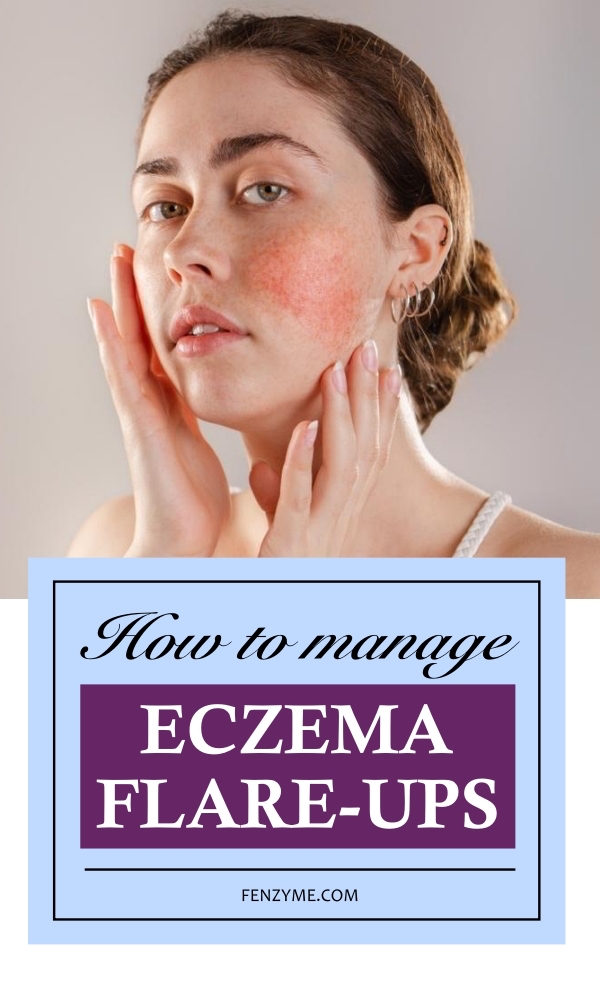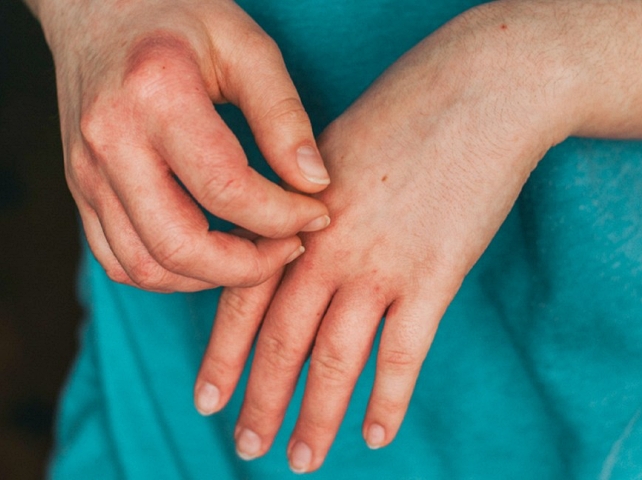Eczema is a skin condition that plagues its sufferers throughout their lives. While sometimes they can be symptom-free for extended periods of time, other times an eczema flare-up pop out of nowhere at the most inopportune times. There are many contributing factors that may cause or aggravate the condition, including but not limited to, genetics, immune system imbalances, materials coming in contact with skin, environmental conditions, compromised skin barriers, chemicals, etc.
Eczema is one of those conditions that cannot be truly cured, but if you learn what your triggers are and what works to soothe your skin. There are some common triggers that you should avoid to improve eczema symptoms prevent them from flaring up.

Of the variety of eczema triggers, it is essential that you keep track of any factors that you have identified as having caused a flare-up in the past and figure out what treatments work best for you in providing relief from the itching. Different eczema remedies work better for different people, and it is in your best interest to identify the ones that work for your skin.
For instance, people have varying reviews about the best facial cleansers for eczema and the Cerave vs Cetaphil debate is ongoing. However, the best bet for long-term relief includes a combination of over-the-counter skincare products as well as making certain lifestyle changes that would minimize exposure to your eczema triggers.
Common Eczema Triggers

Triggers are different for different people. However, there are certain triggers that are more common than others and can cause a flare-up if one is genetically predisposed to eczema. It is often difficult to pinpoint exact triggers because eczema flare-ups often happen sometime after exposure to the trigger. Common eczema triggers identified by dermatologists include:
- Synthetic fabrics like Nylon and Rayon
- Wool and other scratchy fabrics
- Certain cleaning supplies, harsh soap, and detergents
- Smoking, and Vaping
- Hot Water Baths
- Sweat
- Weather changes in terms of temperature and humidity
Other conditions that may aggravate your eczema include:
Anxiety and Stress: One of the major triggers for eczema is anxiety and stress. Emotional turbulence messes with the hormonal balances in the body, specifically the release of cortisol. Cortisol is associated with the body’s fight or flight response and may cause an eczema breakout.
Dehydration and Dryness: Dry skin can aggravate eczema and increase your chances of developing a flare-up. You should always keep your skin hydrated, using natural moisturizers, and drinking plenty of water.
Microbial Infections: Infections in the body put your immune system under pressure. While your body is fighting bacteria, viruses, or other infections, the added stress on the immune system can cause eczema to worsen.
Hormonal Fluctuations: Eczema-prone women are more likely to experience a flare-up in tandem with their monthly cycles.
Chemical Irritants: Cleaning products and other household products that contain strong chemicals can cause a flare-up. Certain cleaning supplies, like detergents, cleaners, and even beauty products like soaps, dyes, shampoos, and skincare products can be eczema triggers.
Allergens: Certain allergens are also responsible for aggravating eczema. These can include pollen, dust, mold, pet hair, and other irritants.
Managing Eczema Flare-Ups

Once you have identified the irritants that trigger your eczema flare-ups, you need to figure out how to keep the itch away. Avoiding triggers is just one aspect of keeping your skin calm and itch-free. You should also hydrate and moisturize your skin with the right creams and ointments. Look for products containing ingredients like ceramides as they help restore the skin’s barrier. You should also refrain from long showers or hot baths as they too can strip your body of moisture and cause a flare-up. Your clothing can also be a trigger so you should select your clothing carefully and choose natural fabrics such as pure cotton and silk.
Eczema Needs Everyday Care
If you are to manage eczema, you need to have a good skincare regime in place. A proper skin care regimen using the right products can prevent eczema outbreaks that can be caused by harsh skincare products. It is essential that you identify and choose products that do not aggravate your condition. You must hydrate your skin and cleanse it using gentle products, or completely natural ingredients.

You should look for beneficial skincare products that contain ingredients like ceramides that will retain the moisture in your skin and keep irritants at bay by restoring the skin barrier. Hydrocortisone and other topical steroids are usually prescribed, and while they do provide almost instant relief, can be more harmful in the long run. You can look up topical steroid withdrawal to see the havoc they can wreak.
To deal with a flare-up, remember to hydrate your skin, and avoid scratching as much as possible as that might injure the skin and cause infections. If you live with eczema you must consult a skincare expert or dermatologist as they can help you identify your unique triggers and teach you how best to manage your eczema symptoms.
